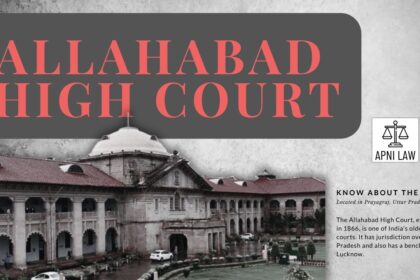Code: Section 44 of Bharatiya Sakshya Adhiniyam (BSA)
When the Court has to form an opinion as to the relationship of one person to
another, the opinion, expressed by conduct, as to the existence of such relationship, of any
person who, as a member of the family or otherwise, has special means of knowledge on the
subject, is a relevant fact:
Provided that such opinion shall not be sufficient to prove a marriage in proceedings
under the Divorce Act, 1869, or in prosecution under sections 82 and 84 of the Bharatiya
Nyaya Sanhita, 2023.
Illustrations.
(a) The question is, whether A and B were married. The fact that they were usually
received and treated by their friends as husband and wife, is relevant.
(b) The question is, whether A was the legitimate son of B. The fact that A was always
treated as such by members of the family, is relevant.
Explanation of Section 44 BSA
Section 44 of the Bharatiya Sakshya Adhiniyam (BSA) deals with the admissibility of opinions, expressed through conduct, regarding the relationship between individuals—such as parent-child, husband-wife, or other familial ties.
The section allows the court to consider the conduct-based opinion of someone who has personal or familial knowledge of the relationship. This can be critical in cases involving inheritance, legitimacy, or marital disputes.
However, there’s an important limitation: this conduct-based opinion cannot alone be used to legally prove a marriage in cases involving the Divorce Act, 1869 or prosecutions under Sections 82 and 84 of the Bharatiya Nyaya Sanhita, 2023.
Key Elements
-
The person expressing the opinion must have special knowledge (typically as a family member or close associate).
-
The opinion should be conveyed through conduct—how the individuals acted or were treated within the family or society.
-
The evidence is not absolute proof, but it is relevant and can support the court’s understanding of the relationship.
Illustrations
-
(a) In a case where the question is whether A and B were married, if friends and family always treated them as husband and wife, this conduct supports the opinion that a marriage existed. However, it cannot solely prove the marriage in a divorce proceeding or under criminal provisions of BNS.
-
(b) If the legitimacy of A as B’s son is questioned, and A was always treated by the family as B’s son, this is a relevant fact that supports the claim of that relationship.
Common Questions and Answers on Section 44 BSA
Q1. Who can provide such an opinion under Section 44?
Anyone with special knowledge of the relationship—such as a family member, long-time household employee, or close friend—can provide a relevant opinion based on observed conduct.
Q2. Can this section be used to prove a marriage?
Yes, but with limitations. In general civil matters, the conduct-based opinion may support the claim of marriage. However, in divorce proceedings or criminal prosecutions under Sections 82 or 84 of the Bharatiya Nyaya Sanhita, it is not sufficient by itself.
Q3. What kind of conduct qualifies as “opinion”?
Examples include:
-
Joint participation in family functions as a couple
-
Being introduced socially as husband and wife
-
Acknowledging children publicly as one’s own
Q4. What are Sections 82 and 84 of BNS?
-
Section 82 BNS deals with bigamy.
-
Section 84 BNS relates to false claims of marriage.
To read more:
Internal Reference Links
-
For opinions regarding general customs or family practices, refer to: Section 42 BSA
-
For opinions on religious institutions and local usages, check: Section 43 BSA
-
For rules around expert opinion: Section 39 BSA
Conclusion
Section 44 BSA gives legal recognition to relationship-based opinions expressed through behavior. It helps courts understand personal relationships, especially when documentary proof is unavailable. However, in specific legal contexts—such as marriage under the Divorce Act or criminal matters under BNS—this opinion alone may not be enough.
Stay informed with accurate, structured legal knowledge. Browse more articles on Bharatiya Sakshya Adhiniyam at ApniLaw.








